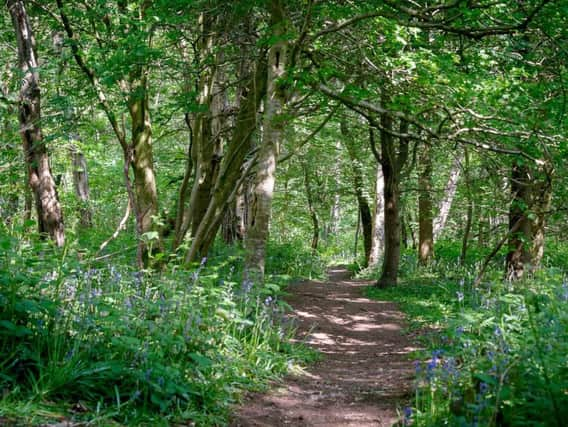HS2 to halt work on 11 ancient woodlands, including Crackley and Cubbington


The Secretary of Transport has ordered that no felling of ancient woods would take place during the review of the high-speed rail project, but he also gave HS2 the discretion to move forward with the felling of some of the woodlands if absolutely necessary for the project.
HS2 announced work will now be deferred to autumn or winter 2020 on five of the 11 ancient woodland sites, and to early 2020 on six of the other sites.
Advertisement
Hide AdAdvertisement
Hide AdHS2 officials said: "We will also take measures to protect wildlife to ensure they are not affected when work begins in early 2020."
A group of protesters have camped out since last weekend at the South Cubbington Wood in an effort to stop work in the woods.
The work affecting 11 ancient woodlands that will be deferred as follows:
The five ancient woodland sites to be deferred until early 2020 include Birches Wood, Broadwells Wood, Crackley Wood, Fulfen Wood, South Cubbington Wood and an unnamed Woodland south of Ashow Road.
Advertisement
Hide AdAdvertisement
Hide AdHS2 also said: "In these locations, we will need to carry out measures to protect wildlife. This will involve some localised removal of selected tree branches for essential protected species mitigation works to meet legal requirements ahead of the works in early 2020.
"However, we will not remove branches from any ‘ancient’ or ‘veteran’ trees within an ancient woodland so as not to affect the integrity of the ancient woodlands.
"Other essential preparatory works will continue including low level vegetation clearance, fencing and preparation of site accesses."
The five other ancient woodland sites where work will be deferred until autumn or winter 2020 include Roughknowles Wood, North Wood, an unnamed copse off Drayton Lane, Rookery Wood and Burnt Firs.
Advertisement
Hide AdAdvertisement
Hide AdHS2 also said of the 52,000 ancient woodland sites in England, 43 will be affected by HS2’s route between London and Crewe, and over 80 per cent of the total area of these 43 will remain intact and untouched by HS2. It also added seven million new trees and shrubs, including over 40 native species, specific to each location will be planted as part of the HS2 programme. The new native woodlands will cover over 9 square kilometres of land.
HS2 officials added: "HS2 aims to be one of the most environmentally responsible infrastructure projects ever delivered in the UK. It will be a greener way to travel offering some of the lowest carbon emissions per passenger kilometre, significantly less than cars and domestic air travel."
Response from the Woodland Trust
Abi Bunker, the director of conservation and external affairs at the Woodland Trust, said: "We are pleased that the government has today confirmed that work in all ancient woods will be deferred until the completion of its review of HS2, at least.
"This is the right decision but it has come very late in the day and only after much pressure from the Woodland Trust and many other organisations and individuals.
Advertisement
Hide AdAdvertisement
Hide Ad"We remain concerned about the fact that HS2 will still be carrying out some work at these sites.
"The richness of ancient woodland isn’t just about trees. It’s also the vegetation, the soils and the wildlife that makes ancient woodland a special irreplaceable habitat.
"Work that permanently affects these habitats like clearing vegetation and evicting bats and mammals must be stopped too while the review is completed.
"It is vital that the Oakervee review is robust, independent, and evidence-based, focusing on the true environmental costs of HS2.
"We will continue to put pressure on the government to ensure this is the case and that any long-term decisions about HS2 take all of the latest evidence into account."